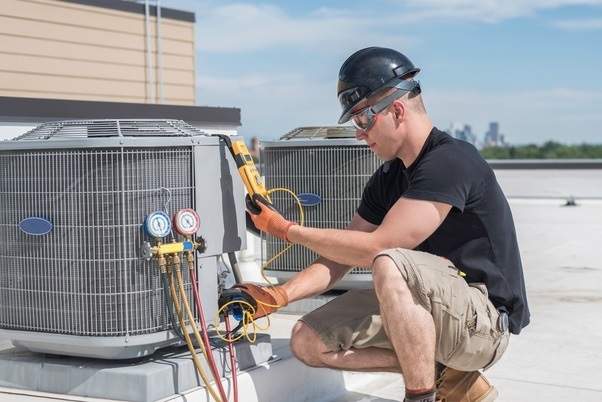In the relentless pursuit of maintaining an optimal indoor environment, the role of Heating, Ventilation, and Air Conditioning (HVAC) systems transcends mere convenience to become an essential facet of modern living. The capacity of HVAC systems to regulate indoor climates, ensuring that homes and office spaces remain sanctuaries of comfort irrespective of the external weather conditions, underscores their indispensability. This indispensability is particularly pronounced in regions experiencing extreme weather conditions, where HVAC systems serve as a bulwark against the discomforts of sweltering summers and bone-chilling winters.
The Science of Comfort: How HVAC Systems Work
At the heart of HVAC systems lies a complex interplay of principles from thermodynamics, fluid mechanics, and heat transfer. This foundational science enables these systems to perform their critical function of regulating indoor air quality and temperature with remarkable precision. In recent years, the integration of advanced technologies into HVAC systems, such as programmable thermostats and smart sensors, has significantly enhanced their efficiency and user control. These technological advancements allow for the maintenance of optimal indoor environments, significantly contributing to the health and well-being of occupants by ensuring the circulation of clean air and the elimination of harmful pollutants.
The Economic Advantage of Regular HVAC Maintenance
The notion that regular maintenance of HVAC systems is economically advantageous holds considerable weight. A system that is regularly serviced maintains its efficiency, leading to lower energy consumption and, by extension, reduced utility expenses. Moreover, routine maintenance checks serve as a preventative measure, identifying and rectifying minor issues before they escalate into major problems necessitating costly repairs or even complete replacements. Thus, the economic rationale for investing in regular HVAC maintenance is compelling, offering a clear illustration of the adage that prevention is better than cure.
Navigating the Technological Evolution in HVAC
As we delve deeper into the realm of HVAC advancements, it becomes clear that the industry is experiencing a renaissance of innovation aimed at not only enhancing the user experience but also addressing the pressing concerns of energy consumption and environmental sustainability. For instance, the introduction of smart HVAC systems, equipped with AI-driven thermostats, can learn from a user’s preferences and adjust the indoor climate accordingly, thereby optimizing energy use and reducing costs.
Additionally, the shift towards using low Global Warming Potential (GWP) refrigerants exemplifies the industry’s commitment to reducing its carbon footprint. These refrigerants, designed to have a minimal impact on global warming, are becoming increasingly prevalent in new HVAC systems, replacing their high-GWP counterparts.
Moreover, the emergence of geothermal heat pumps as a sustainable alternative to traditional heating and cooling methods illustrates the innovative directions the industry is taking. By leveraging the stable temperatures underground, these systems provide efficient heating in the winter and cooling in the summer, significantly reducing the reliance on fossil fuels and decreasing electricity usage.
These examples not only highlight the HVAC industry’s dedication to innovation and sustainability but also emphasize the potential for significant energy savings and environmental benefits. Such advancements, when paired with professional HVAC services, ensure that homes and businesses are not only comfortable but also contribute to the broader goal of environmental conservation.
Choosing the Right HVAC Service: A Guide
The selection of an HVAC service provider is a decision fraught with significance, given the critical role these systems play in ensuring comfort. It is imperative to choose a provider that not only possesses the technical expertise required to maintain and repair these complex systems but also values customer satisfaction.
Prospective service providers should have the necessary professional certifications, which serve as a testament to their skill and adherence to industry standards. Equally important is the examination of customer testimonials, which can provide insights into the provider’s reliability, quality of service, and ability to deliver on their promises.
Conclusion: The Unquestionable Value of HVAC Services
In sum, the critical role that HVAC services play in facilitating comfortable living and working conditions throughout the year is incontrovertible. The scientific principles that enable these systems to function, the economic benefits of their maintenance, and the environmental advantages of the latest innovations in the field collectively underscore the value of HVAC services.
As individuals and businesses navigate the challenges of maintaining optimal indoor climates, the expertise and guidance of professional HVAC services remain an invaluable resource. The selection of a service provider, therefore, is not a decision to be taken lightly but one that requires careful consideration and due diligence. In doing so, one can ensure not only the comfort and well-being of occupants but also the efficient and sustainable operation of these indispensable systems.
